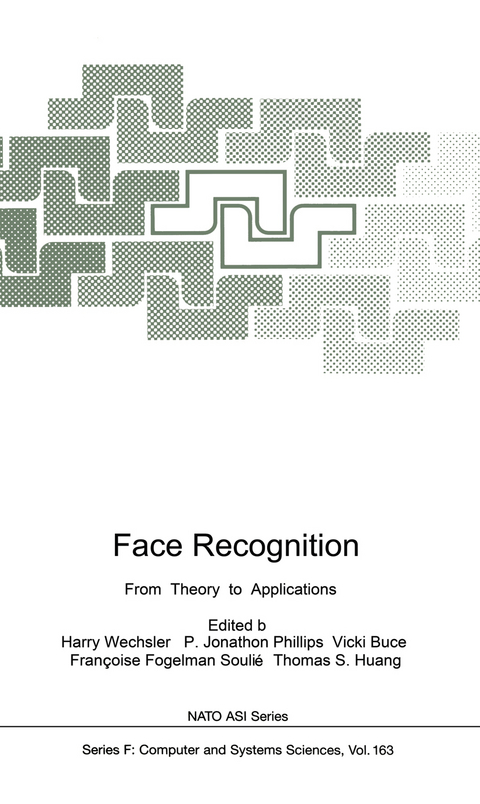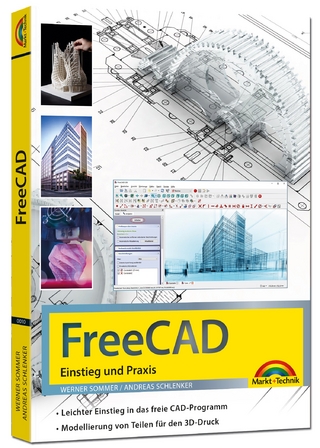
Face Recognition
Springer Berlin (Verlag)
978-3-642-72203-5 (ISBN)
The NATO Advanced Study Institute (ASI) on Face Recognition: From Theory to Applications took place in Stirling, Scotland, UK, from June 23 through July 4, 1997. The meeting brought together 95 participants (including 18 invited lecturers) from 22 countries. The lecturers are leading researchers from academia, govemment, and industry from allover the world. The lecturers presented an encompassing view of face recognition, and identified trends for future developments and the means for implementing robust face recognition systems. The scientific programme consisted of invited lectures, three panels, and (oral and poster) presentations from students attending the AS!. As a result of lively interactions between the participants, the following topics emerged as major themes of the meeting: (i) human processing of face recognition and its relevance to forensic systems, (ii) face coding, (iii) connectionist methods and support vector machines (SVM), (iv) hybrid methods for face recognition, and (v) predictive learning and performance evaluation. The goals of the panels were to provide links among the lectures and to emphasis the themes of the meeting. The topics of the panels were: (i) How the human visual system processes faces, (ii) Issues in applying face recognition: data bases, evaluation and systems, and (iii) Classification issues involved in face recognition. The presentations made by students gave them an opportunity to receive feedback from the invited lecturers and suggestions for future work.
I : Lectures (lecturer's name printed in bold face).- Neural and Psychophysical Analysis of Object and Face Recognition.- Multi-Modal Person Authentication.- Human Face Perception and Identification.- Discriminant Analysis of Principal Components for Face Recognition.- Inductive Principles for Learning from Data.- Phenotypic Versus Genotypic Approaches to Face Recognition.- Connectionist Methods for Human Face Processing.- Efficient Focusing and Face Detection.- Face Detection and Recognition.- The Bochum/USC Face Recognition System.- Face Recognition Using Deformable Matching.- Beyond Linear Eigenspaces: Bayesian Matching for Face Recognition.- The FERET Evaluation.- Active Vision-based Face Recognition: Issues, Applications and Techniques.- Getting Facial Features and Gestures in 3D.- Generalization to Novel Views from a Single Face Image.- Modular Forensic Architectures.- Eye Detection and Face Recognition Using Evolutionary Computation.- II : Participant Presentations (participant's name printed in bold face).- Learning Viewpoint Invariant Face Representations from Visual Experience by Temporal Association.- Visible Speech Perception and Robustness in Face Processing.- Practical Applications of Facial Recognition: Automated Facial Recognition Access Control System.- Estimating 3D Facial Pose Using the EM Algorithm.- PCA, Neural Networks and Estimation for Face Detection.- 3D Pose Estimation of the Face from Video.- Characterizing Virtual Eigensignatures for General Purpose Face Recognition.- An Attentive Processing Strategy for the Analysis of Facial Features.- Face Location in Real Backgrounds.- Recognizing People and Behaviors.- Differences of Face and Object Recognition in Utilizing Early Visual Information.- Pulse Images for Face Recognition.- FacelessIdentification.- Pose Discrimination and Eye Detection Using Support Vector Machines (SVM).- A Practical Automatic Face Recognition System.- Feature Processing from Upright and Inverted Faces.- Using Differential Constraints to Generate a 3D Face Model from Stereo.- Fast Face Location in Complex Backgrounds.- Recognising Moving Faces.- Some Experiments on Face Recognition with Neural Networks.- Face Recognition Research at CSIRO.- Face Image Processing Supporting Epileptic Seizure Analysis.- Real-time Gaze Observation for Tracking Human Control of Attention.- A Saccadic Vision System for Landmark Detection and Face Recognition.
| Erscheint lt. Verlag | 10.12.2011 |
|---|---|
| Reihe/Serie | NATO ASI Subseries F: |
| Zusatzinfo | IX, 636 p. |
| Verlagsort | Berlin |
| Sprache | englisch |
| Maße | 155 x 235 mm |
| Gewicht | 950 g |
| Themenwelt | Informatik ► Grafik / Design ► Digitale Bildverarbeitung |
| Informatik ► Theorie / Studium ► Künstliche Intelligenz / Robotik | |
| Schlagworte | algorithms • biometrics • Cognition • computer vision • Evolution • face perception • Facial Recognition • Image Processing • learning • machine learning • Neural networks • Object recognition • Pattern • pattern recognition • perception • Psychophysics • Support Vector Machine |
| ISBN-10 | 3-642-72203-2 / 3642722032 |
| ISBN-13 | 978-3-642-72203-5 / 9783642722035 |
| Zustand | Neuware |
| Haben Sie eine Frage zum Produkt? |
aus dem Bereich


